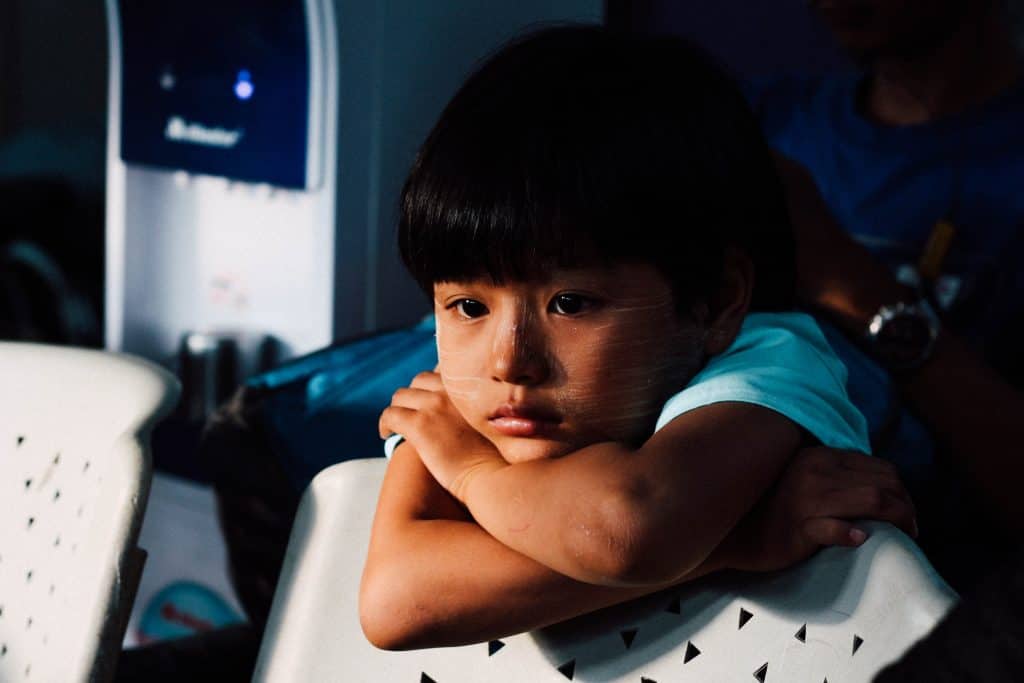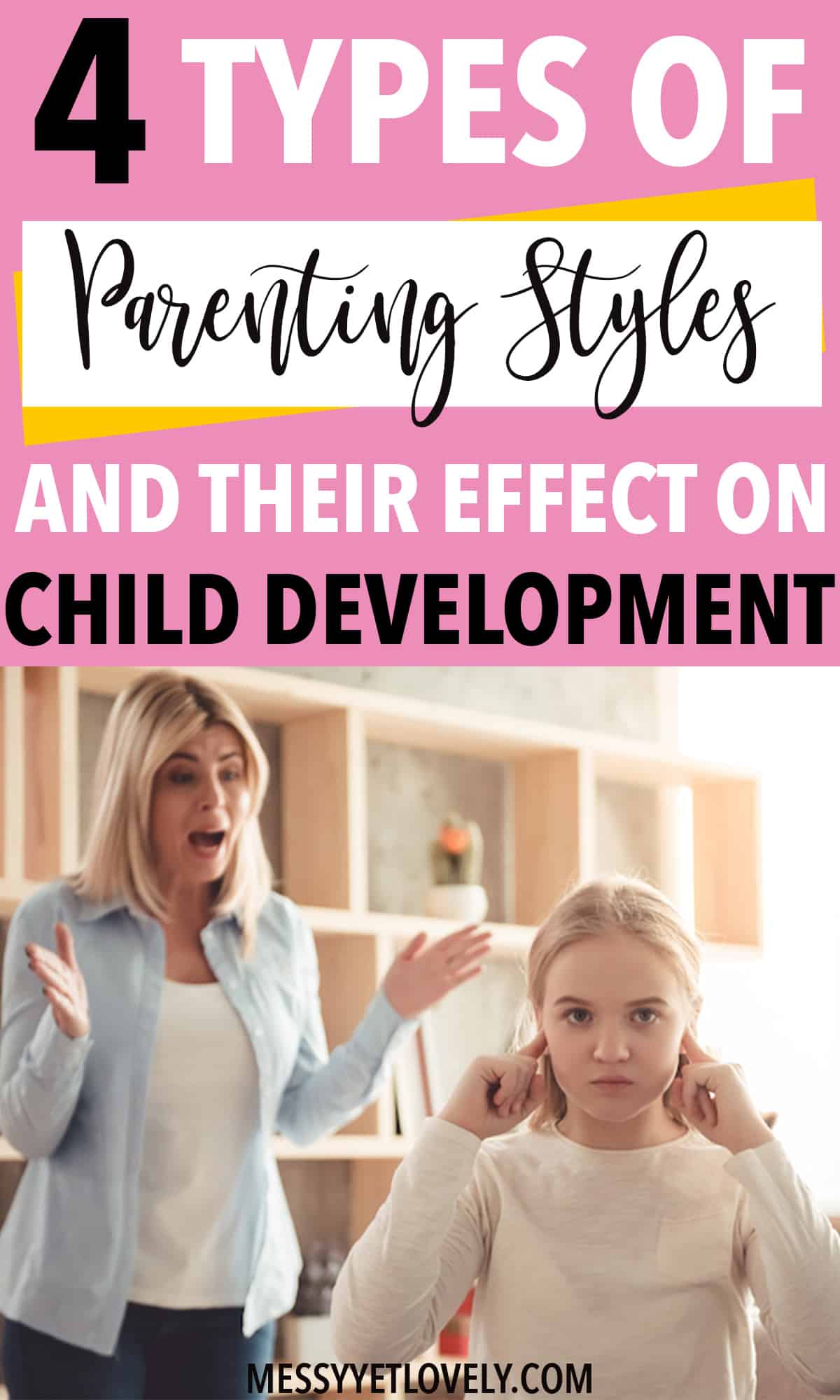Your parenting style has a great impact on who your child becomes. The way you choose to parent is important because it determines many of the personality traits of your child.
The type of parenting style you follow influences their self-esteem and how they carry themselves throughout life.
What are the different types of parenting styles? And how are they classified?
BAUMRIND’S PARENTING STYLES
Diana Baumrind was a clinical and developmental psychologist at the Institute of Human Development in the University of California, Berkeley. She was known for her research and her work in the classification of parenting styles.
Baumrind classified parenting styles based on four elements: responsiveness vs unresponsiveness and demanding vs undemanding.
Parental responsiveness is defined as the degree to which parents respond to the needs of their children which can be physical, mental, or emotional.
Parental Demandingness refers to the rules which the parent has in place for their child’s behavior, the expectations for their children to comply with these rules, and the level of repercussions that follow if those rules are broken. (Source: Wikipedia)
Baumrind classified parenting styles into three: authoritative parenting, authoritarian parenting, and permissive parenting (1967).
Later, in 1983, Maccoby and Martin further classified parenting styles into four distinct categories.
- Authoritarian
- Permissive
- Authoritative
- Uninvolved
Let’s see how each type of parent differs from each other and the effects these parenting style has on children.
FOUR PARENTING STYLES AND THE EFFECT OF EACH ONE ON CHILDREN
1. Authoritarian parenting style
Authoritarian parenting style follows strict rules and discipline methods.
Authoritarian parenting is an old-school type of parenting, where parents do not take the child’s feelings into account and therefore they are not allowed to negotiate. They are expected to obey the rules and have to face punishments if they break the rules.
Authoritarian parents are famous for saying “because I said so”. Kids often do not understand the motives behind the rules, as they are not given much explanation.
Authoritarian parents make decisions for their kids controlling every aspect of their lives. As a result, they follow rules only because they have to, and it affects their self-esteem badly.
Children raised under this type of parenting do not receive love and nurturing.
Authoritarian parents often appear as cold and harsh and do not express their love for kids. They are quick to criticize and yell, and rarely give praise or encourage kids.
How does authoritarian parenting affect children?
- They have low self-esteem
- It’s difficult for them to differentiate between right and wrong, as they were never given the option to choose
- They don’t know to express their feelings
- Since they are never given options to do things on their own and make mistakes, they become insecure and afraid to act.
- They are more dependent
- They become more aggressive and resort to violence with their own spouse and kids
- Have poor social skills
- Even though they are raised in a strict environment, they lack self-discipline and self-control because the rules are always imposed on them and as a result don’t know to self-regulate.

Related: 7 tips to stop being an angry mom
2. Authoritative parenting style
Child development experts agree that the authoritative parenting style is the most preferred one in raising kids who are happy, successful, and have better emotional health.
Like authoritarian parenting, authoritative parents set rules and limits. They have demands and high expectations too. But they do not resort to punishment if those are not met.
Authoritative parents consider children’s feelings and they are given the opportunity to be both seen and heard.
This results in the development of kids who have high self-esteem and are sure of themselves.
Authoritative parents are firm with their rules, but they are responsive to kids by always taking time to explain the logic behind rules.
They give their kids the opportunity to express their feelings and their feelings are always met with empathy.
As a result, kids become more co-operative and well behaved. Authoritative parenting style lets kids explore on their own and make mistakes and learn the consequences by themselves.
At the same time, they are given positive guidance too. This leads to the development of kids who are confident, self-regulated, and self-disciplined.
Positive parenting, peaceful parenting, respectful parenting, all come under the term authoritative parenting.
Parents who follow this parenting style do not believe in physical punishments. Instead, they use, positive discipline methods to ensure kids follow the rules.
Related: What is positive parenting and how to get started? A beginner’s guide
How does the authoritative parenting style affect children?
- They are more responsible and independent. They are seen to be capable of making their own decisions.
- Have better social skills
- They are more resilient, empathetic, and kind
- They are more respectful of rules and others’ feelings
- They are less aggressive
- They have better emotional health
- They have a better relationship with their parents
Related: 10 positive parenting skills every parent must know

3. Permissive parenting style
Permissive parents are highly responsive to their kids but they don’t really set limits. They are loving and nurturing, but they set few rules and therefore children are not taught the consequences of misbehavior.
Even if they have set a rule or two, they easily give in because they don’t want to hurt their child’s feelings.
They can’t hear their child cry and therefore easily grants their wishes. Permissive parents are just the opposite of helicopter parents who closely watches every move of their child.
Children brought up under the permissive parenting style have no expectations to meet because permissive parents don’t know to set limits.
They see themselves more as a friend of the child rather than as a parent. Hence these parents try to be more friendly by granting all their wishes even if it means breaking a rule.
They do not step in firmly when the rules are broken and give in to the demands of kids. These kids are not given proper guidelines and instructions and therefore lack self-control and self-regulation.
Hence they are highly independent, but not disciplined.
How does permissive parenting affect children?
- They have behavioral problems and cannot stick to rules
- Poor social skills
- They lack problem-solving skills
- Perform poorly academically
- They are demanding and can become defiant when they don’t get what they want
- Are more prone to anti-social behaviors
- They feel they are entitled to get whatever they want

4. Uninvolved parenting
Like the name suggests uninvolved parents do not involve in parenting their child at all. They don’t take part in the decisions regarding their child’s life.
They are unresponsive to a child’s needs and they don’t receive any affection and nurture.
In uninvolved parenting, kids are left to grow up on their own. The uninvolved parents usually struggle with mental diseases on their own or they are overburdened and overwhelmed with their own problems in life, and they are intentionally or unintentionally absent from their child’s life.
Or it could also be due to a lack of knowledge on child development or other selfish reasons.
While uninvolved parents may provide some basic needs, children are left to grow up on their own with no demands, guidance, or expectations.

How does uninvolved parenting affect children?
- They fail to find self-identity
- They fail to form close relationships due to the lack of love and support they received
- Have mental health issues
- Become engaged in anti-social behaviors (alcoholism, drug abuse)
- Poor academic skills
WHAT IS YOUR PARENTING STYLE?
Unless you knew about the different parenting styles before, you could be parenting based on how you were parented. Many of the parenting practices are passed onto us from our parents.
But knowing the different parenting styles and their effects on our kids is a starting point. Because, ultimately, what we want is to raise happy, well-adjusted, and successful kids, who also have a good relationship with us.
Now, I am interested in knowing about your parenting style and how it has impacted your child’s behavior. Let me know in the comments below.
If you love what you are reading, please take a moment to PIN and SHARE!

